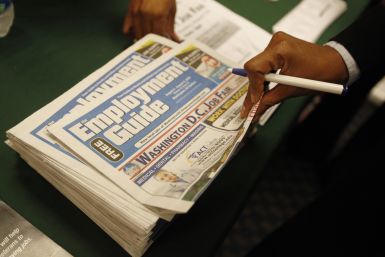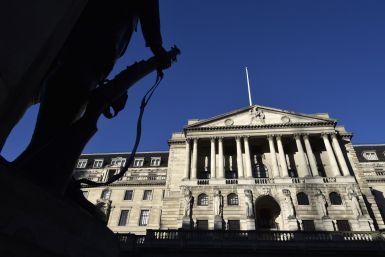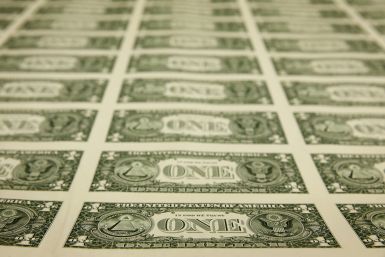Economic Minister Akira Amari told reporters the economy was on track for a recovery.
The health of the world’s third largest economy will be revealed Sunday evening after Japan unexpectedly fell into recession in the third quarter.
The Australian Prime Minister was responding to a question in parliament about the country’s rising unemployment, which is at a 12-year high.
A February 2015 Pew Research poll shows a larger share of Americans are hearing good news about the jobs situation.
A new report shows industrial robotics prices are starting to fall below the cost of labor. And it’s happening worldwide.
Bank shares jumped more than 1 percent because higher interest rates benefit their earnings.
U.S. employers added 257,000 jobs in January, marking the longest stretch of job gains above the 200,000 level since 1994.
U.S. unemployment may be falling, but paychecks aren't growing. In 2014, the average hourly wage only rose from $24.17 to $24.57 an hour.
The bank hiked its key rate by a total of 11.5 percentage points last year in response to panic on the currency market and soaring inflation.
British inflation last month unexpectedly tumbled to 0.5 percent, its lowest in more than 14 years and far below the BoE's 2 percent target.
The United Nations said that high levels of unemployment among young people could eventually lead to "social unrest."
Dow drops after U.S. jobs report shows higher employment, lower wages. U.S. and Brent crude both drop below $50 a barrel.
The unemployment rate fell in December, but in a lame post-recession recovery millions remain at the margins.
U.S. jobless rate falls from 5.8 percent to 5.6 percent. Hourly wages decline by 5 cents an hour. Long-term unemployed unchanged.
The unemployment rate is forecast slipping one-tenth of a percentage point to 5.7 percent in December, which would be the lowest since June 2008.
Chancellor Angela Merkel's government introduced Germany's first country-wide wage floor of 8.50 euros an hour on Jan. 1.
New export orders rose for a sixth straight month but at a slightly slower pace than in November.
Data released Wednesday showed the fourth straight week of declines in claims.
When it comes to postrecession wages, most Americans "have essentially gone nowhere," says Josh Bivens, of the Economic Policy Institute.
Department of Labor data released Friday paint a rosy picture of state labor markets, but they ignore important considerations.
The U.S. dollar hit a seven-year high against the Japanese yen on Monday. Why would a stronger dollar be bad for the U.S. economy?
The U.S. economy may have added the most jobs in nearly three years last month, but many still struggle.











































